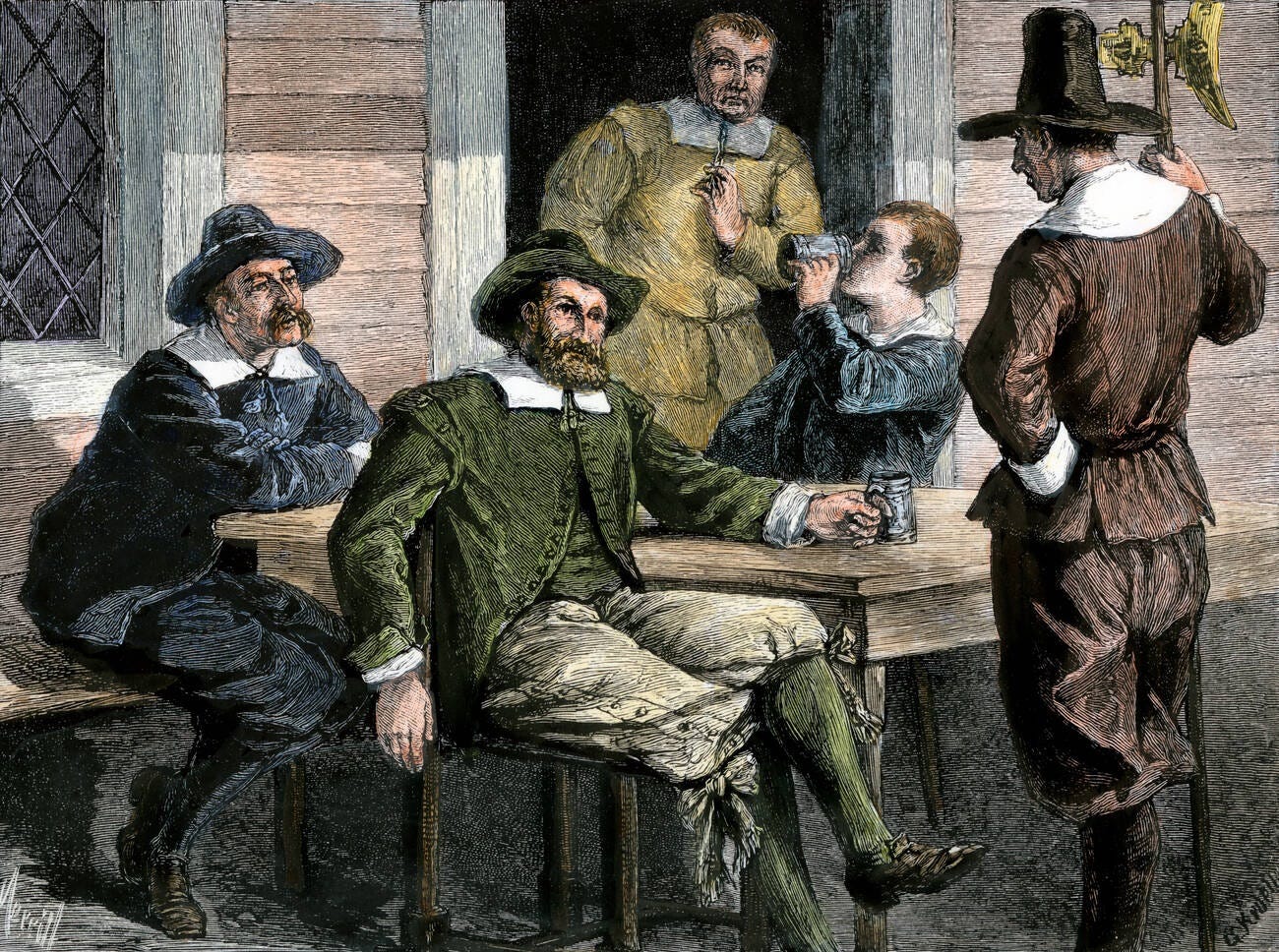Were the Puritans Liberal?
Also: Nietzsche in Turin, feral peacocks in BC, a history of the bookmark, and more.
Marilynne Robinson has a long essay in the latest Harper’s that is worth your time. It’s titled “One Manner of Law,” and it’s about Hugh Peter and the Massachusetts Body of Liberties that the Puritans passed in the Massachusetts General Court in 1641.
The Puritans get a bad rap. We think of them as provincial, censorious Sabbatarians, who shut down the theatres and hung witches, but Robinson argues that they were actually cosmopolitan liberals.
To suggest the former, she looks at the example of Hugh Peter, who was involved in instituting the Body of Liberties. Born in England and a graduate of Cambridge, he lived in Holland before coming to New England in 1635. He was involved in Anne Hutchinson’s trial and in the founding of Harvard. When he left New England on business to return to England, he became involved in the British Civil War and eventually became a chaplain to Oliver Cromwell and the Parliament. (Upon the return of Charles II, he was hanged, drawn, and quartered.) Robinson writes:
The prominence of Hugh Peters in Massachusetts and in Cromwell’s England suggests a relationship between “the two Englands” that was more than mere consanguinity. The Body of Liberties did not rise organically from a society based largely in subsistence farming with English common law as its default. Its concerns are broader than what a brief experience of life in the New World could have occasioned. It has the character of a constitution in that it defines the relationship of the individual to the state. It takes its authority not from royal assent or some Commonwealth equivalent but from its ratification by the colonial assembly and its indebtedness to biblical law.
She refers to John Winthrop’s famous “city set on a hill” sermon and writes that it “assumes that what happens in Massachusetts will be of interest to the world.”
She also argues that the Massachusetts Body of Liberties was a liberalizing document. While it is indebted to the British Petition of Right, it surpasses it—and other colonials documents, like the Fundamental Constitutions of Carolina—in its defense of individual liberty. For example:
The Body of Liberties is careful to specify that even the condemned or excommunicated are free to dispose of their property as they see fit: this might be in response to the design for Carolina that was based on unalienable land ownership and fixed class status. In any case, it removes an important traditional power of the church and the state. Any man and his family can leave a jurisdiction at will . . . The Body of Liberties also forbids imprisonment without trial, as well as double jeopardy . . . More radical still is the plain language of the document: “no man,” “every man”—these phrases occur as insistently as “upon paine of death” does in Dale’s Code. The Liberties are, for the most part, written to be universal within the community.
The Body of Liberties also gets rid of capital punishment for “crimes against property.” This is something, Robinson writes, that “would very much disburden the poor.”
Overall, Robinson makes a strong case that the Puritans were not, in fact, repressive, “narrow, pious simpletons.” The Body of Liberties was a liberalizing document that anticipated the Bill of Rights. But I have two quibbles with the piece.
Keep reading with a 7-day free trial
Subscribe to Prufrock to keep reading this post and get 7 days of free access to the full post archives.




